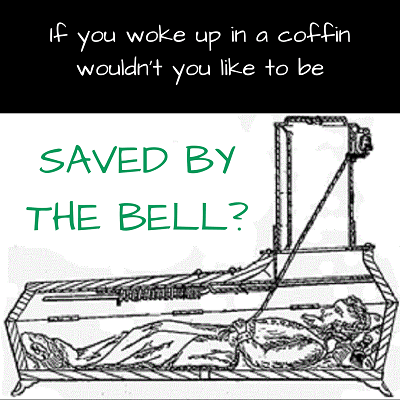
YouTube / iTunes / Spotify / Radio Public / Pocket Casts / Google Podcasts / Breaker / Overcast
Listen to ArtisanEnglish.jp posts & lesson intros here.
Idiom: Saved by the bell
Saved by the bell is an expression used in English when a situation suddenly ends, and you don’t have to do something you didn’t want to do in the first place.
We’ve all been saved by the bell at one time in our lives.
Perhaps you were asked a difficult question in a university lecture right at the end of the period.
Just before you could try to answer, the bell sounded, indicating the end of the class.
Luckily you were saved by the bell.
You’ve probably watched some sport on TV when a team or athlete was saved by the bell.
Sometimes in boxing, a fighter is in a challenging situation.
They are being overwhelmed and can’t fight back.
It looks as if they will be knocked out or knocked down but then… ding, ding, ding… they are saved by the bell.
So you’re familiar with the situation.
But where did the expression come from?
Well, it has pretty scary origins.
Japanese have always preferred cremation after death.
Christians, however, have traditionally preferred burial.
Actually, for Roman Catholics, cremation is not allowed.
Therefore, one of people’s worst fears was to be buried alive.
I’m unsure how often living people were mistakenly buried alive, but it has happened.
In the nineteenth century, designers began designing so-called safety coffins.
These coffins were rigged with bells so that if someone woke up underground, they could alert people by pulling on a string and ringing a bell.
I’ve even heard that in some cases, the rope extended all the way into a house so if no one was outside or everyone was asleep, they could more easily be alerted and rescue the mistakenly buried person more quickly.
Can you imagine the horror of being buried alive?
That’s one situation where you would wish to be saved by the bell.
Flesch-Kincaid Readability Test
This post is understandable by someone with at least a 7th-grade education (age 12).
On the Flesch-Kincaid reading-ease test, this post scores 71.
The easier a passage is to read, the higher the score on a scale of 0 – 100.

